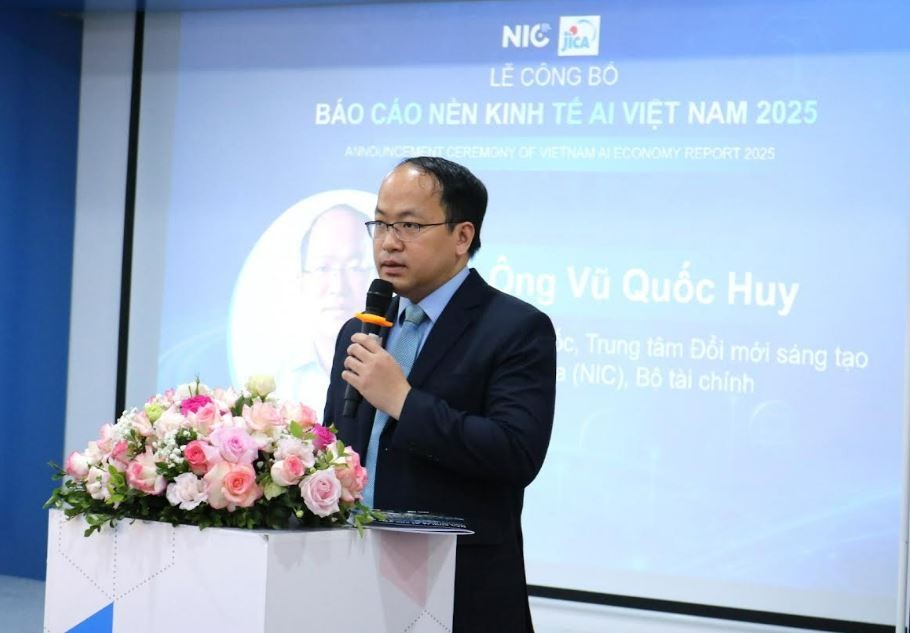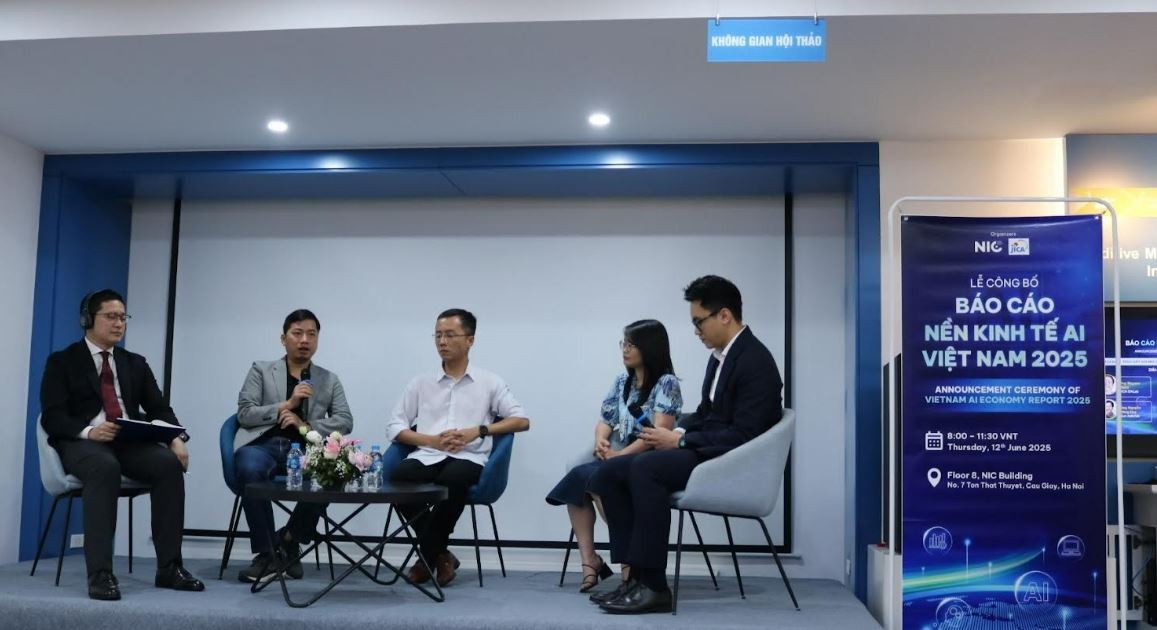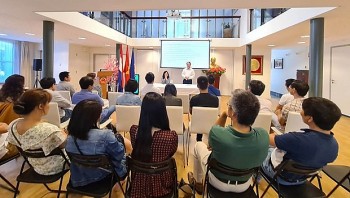Vietnam Leads the Region in Artificial Intelligence Application
| Meta to Invest in Smart Glasses & AI for Vietnamese Market | |
| Vietnam Participation in Paris AI Summit Affirms Its Role in the Int'l AI Community |
Artificial Intelligence (AI) is a driving force for global far-reaching transformation and is ranked number one priority in the digital transformation program of the world's leading governments and enterprises. It is expected that by 2030, AI will create the equivalent of US $5 trillion in value for the global economy.
The above information was published on June 12, by the National Innovation Center (NIC) - Ministry of Finance in collaboration with the Japan International Cooperation Agency (JICA), Japan External Trade Organization (JETRO) and Boston Consulting Group (BCG).
The report conducted an in-depth analysis of the current situation and development potential of AI in Vietnam and provided important strategic directions to promote the sustainable development of the AI economy in the future.
Vietnam's top priority
 |
| Director of NIC Vu Quoc Huy spoke at the event (Photo: JICA). |
To realize the goal of becoming a leading country in AI, the Government has implemented many important initiatives. Prominent among them are Resolution 57/NQ-TW and the national strategy on AI stated in Decision 127/QD-TTg. These documents demonstrate the Government's strong commitment to promoting digital transformation as well as a guideline for research activities, developing and applying AI in various fields.
According to the report, AI will become a driving force for sustainable economic growth in Vietnam with its economy scale expected to reach US $120-130 billion by 2040. This growth will come from two main sources, namely consumer revenue growth (US $45-55 billion) and profit growth thanks to productivity improvement (US $60-75 billion).
These numbers represent the enormous potential of AI for economic development on the one hand, and the enormous opportunities for businesses and policymakers on the other.
The report assessed that this is an important time for Vietnam to make the most of the potential of AI and affirm its position on the global digital economy map. Specifically, Vietnam has clearly identified AI as one of the pillars of the national strategy to 2030. To achieve this goal, many practical policies are being implemented to support human resource development, AI startups, and research and development activities.
Vietnam ranks 2nd among the leading countries in Southeast Asia in terms of the number of startups and AI-focused investment capital (2024). One of the important factors driving the development of AI in Vietnam is the information technology and digital technology workforce.
Currently, the country has more than 150 universities offering courses related to information technology and more than 60,000 graduates annually. Educational institutions such as Hanoi University of Science and Technology (HUST) have pioneered the implementation of bachelor's and master's programs in AI to meet the needs of the industry.
NIC and Google's Build for AI Future program have equipped students from 80 universities and colleges with essential AI knowledge. These programs have initially achieved significant successes in raising awareness and skills about AI for the younger generation.
A significant part of the public population is actively embracing the advancements of AI, and many business leaders have also shown strong interest.
Three Pillars of Development
 |
| The event was held by the National Innovation Center (NIC) - Ministry of Finance in collaboration with the Japan International Cooperation Agency (JICA), Japan External Trade Organization (JETRO) and Boston Consulting Group (BCG) (Photo: JICA). |
The report points out three overall development pillars that will directly promote the development of the AI economy.
The first is to expand the application of AI in both the public and private sectors. This is key to driving the AI economy to grow exponentially, and high-impact sectors that need to be prioritized include Government services, environmental and disaster management, healthcare, financial services, and transportation.
The second is to support the growing AI ecosystem for scale and competitiveness. This includes sustainable AI startup accelerator programs, the provision of business and technical advisory services, investment and collaboration opportunities, and help new businesses entering the domestic market develop and deploy AI solutions more effectively.
It is also necessary to build in-depth human resources, specifically developing AI training programs that meet international standards for bachelor's, master's and doctoral degrees and implementing large-scale AI talent training programs with top quality (such as Japan's GCI program).
Director of NIC Vu Quoc Huy shared that Vietnam is entering a particularly important transition period, in the context of the 4th Industrial Revolution taking place strongly with new breakthroughs in strategic technologies (such as artificial intelligence, semiconductors, biotechnology, etc renewable energy and big data) are reshaping global value chains and changing the structure of economies.
To seize this opportunity, Vietnam is determined to establish a solid position in the field of AI, by actively promoting extensive cooperation with the world's leading countries, economies and technology corporations.
“Vietnam AI Economy 2025" is the first document to provide a complete picture of the AI economy in Vietnam, providing some international experiences and lessons for AI development and analyzing opportunities in key economic sectors. propose development pillars for the AI economy.
"We hope that JICA and Japanese partners will continue to accompany the National Innovation Center in developing the innovation ecosystem, especially high-quality human resources and incubating and accelerating the development of Vietnamese startups in the field of artificial intelligence. With young, dynamic, tech-savvy human resources and a desire for innovation and creativity, Vietnam is ready for the journey to become a center for AI research, development and application in the region and globally," Director Vu Quoc Huy affirmed.
Kubo Yoshimoto, JICA Deputy Chief Representative of the Office in Vietnam, emphasized that JICA has long supported development and worked closely with the Government to promote sustainable growth and innovation. In response to the rapid digital transformation globally, JICA has established the JICA DX Lab (in 2022). This is a specialized initiative to promote digital innovation (including AI) in developing countries, including Vietnam.
"We believe that this cooperation will promote Vietnam's strengths and create a solid foundation for long-term success," Kubo said.
 | Vietnamese Intellectuals in Netherlands Discuss Application of Digital Technology Speakers and members attending a scientific event organized by the Vietnam Association of Science-Technology and Information Technology in the Netherlands discussed the application of digital ... |
 | Green Technology Research and Application Promoted in Vietnam On December 7, the Southeast Asia subregional workshop on green and secure smart city development was organized in Hanoi. |
